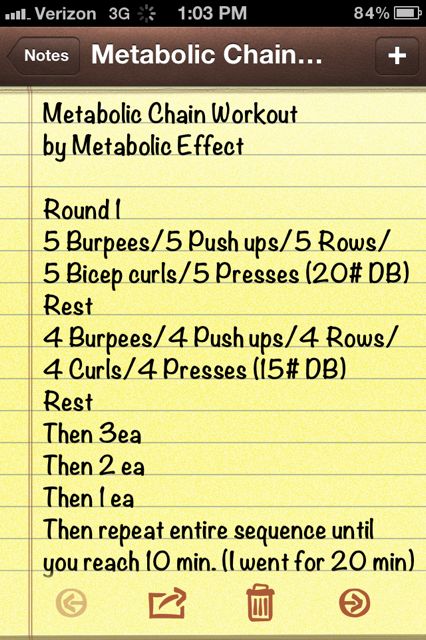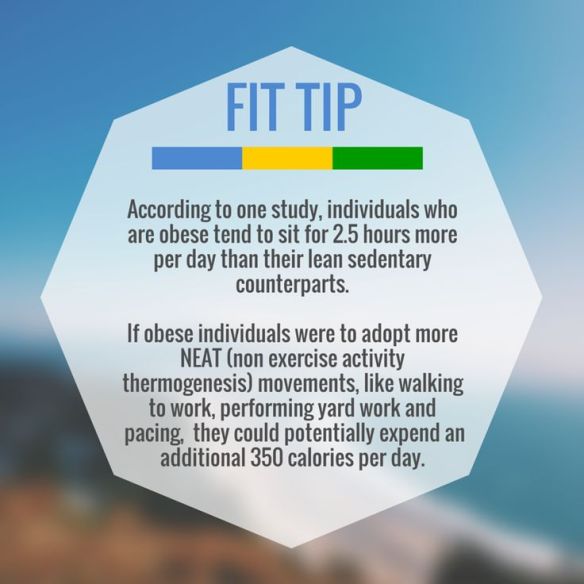After (semi) lecturing a client about why it was important to lose body fat BUT maintain lean muscle (even if the “weight” on the scale stood stagnant because of it), she looked me straight in the fact and said, “So this whole process is just about building a better metabolism?”
I wanted to hug her. “YES,” I cried to my dear and startled client, “YES IT IS!”
And herein lies one of the most obvious but most misunderstood connections between exercise, body composition, and nutrition: metabolism. Scientifically, metabolism is the sum of all the chemical processes inside our body that help us maintain life. In layman’s terms, metabolism is the way in which your body converts and uses energy for fuel.
So why does this metabolism stuff matter to those of us out here in the streets, just trying to get fit?
There are lots of reasons. Your basal metabolic rate (BMR) refers to the amount of calories your body burns at rest – and the higher your BMR, the less you have to do to actually burn the energy (read: food) you consume.
People with a greater muscle-to-fat ratio have higher BMR, even if their weight is exactly the same as someone with more fat than muscle. Men tend to have higher BMR than women (sh*t, they win again!). And people who go on starvation (VERY low-calorie) diets, even temporarily, can actually permanently decrease their BMR by sending the body into a “starvation mode” and causing it to hold onto energy and store it as fat.

A bit exaggerated…but like, not much. #damnyoumen
In short: metabolism matters, and you definitely don’t want to mess yours up. So what can you do to promote a faster, better metabolic rate?
First and foremost – SLEEP! A lack of sleep, particularly when chronic, can lead to a neuroendocrine imbalance that not only makes the body store more energy as fat, but can also make you feel ravenous all day long (increased appetite hormones) and forget to tell you when you’re had enough to eat (decreased satiation regulators).
Second of all, lift weights. I’ve talked about this time and time again, but the single best thing you can do to “speed up” (and I use this term loosely since you don’t actually change the metabolism itself but rather its efficiency in processing energy) your metabolism is to build lean muscle. Every pound of muscle burns TRIPLE the amount of calories (six versus two) than the same weight in fat. If you want to burn more by doing less (something appealing even to my least-active client), muscle is where it’s at.

Beginners Guide to Lifting Weights for Metabolism
Third – and this may seem obvious – eat food. Your metabolism is like a gas grill, and it doesn’t spark a fire without fuel. When you don’t eat enough, not only does your body think it’s starving (and start holding onto every bit of energy/food you DO put into it), it starts to cannibalize your precious muscle tissue (SEE ABOVE) for energy – not good. What you eat is also important – protein is the best muscle-retaining macronutrient out there, fiber can rev up the fat-burning process even more, and staying hydrated (with water, by the way) makes all of your body’s most vital processes run smoothly and more efficiently.
Finally, be a mover (and heck, while you’re at it, a shaker). Separate from the resistance exercise I mentioned above, what scientists are now calling NEAT (non-exercise activity thermogenesis) can actually be more effective in helping you lose weight and build fat-burning metabolism than “actual ” exercise. Everything from fidgeting to taking the stairs up to your office to standing instead of sitting to take a phone call counts as NEAT, and in very active individuals, their NEAT daily calorie burn is more than what most other people might burn in a 30-minute elliptical session (something many people mistakenly consider a “workout,” which is a topic for another time).

The combination of what you eat, how you move, and your other lifestyle factors (sleep, stress, etc.) is mostly responsible for how efficient your metabolism works – but don’t discount the “big G-factor” known as genetics (womp womp, I know). If your family is prone to PCOS, Cushing’s Syndrome, diabetes, or thyroid issues, or if you’re on certain antidepressants or other medications, your metabolism may be slower than most – and it’s out of your control. But even with these clients, I always encourage them not to use their medical conditions as excuses to be lazy with diet an exercise – but rather as a catalyst to rise above what they can’t control and focus on what they can (clean eating, regular workouts, and a positive mindset).
Do you think you have a “fast” or a “slow” metabolism – and do you personally believe it can change over time and/or with lifestyle habits?
